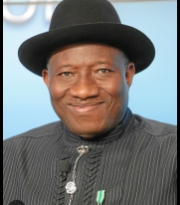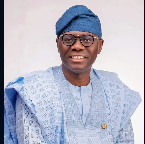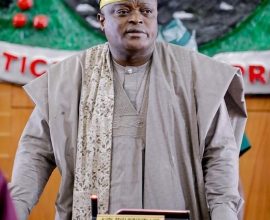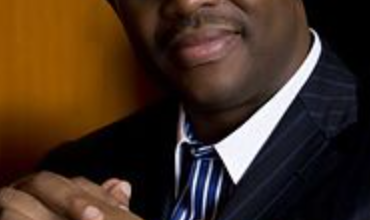
2027: Lawyer drags Goodluck Jonathan to court
CITIZENS COMPASS—As the 2927 general elections approach, the hope of former president, Goodluck Ebele Jonathan may hang in the balance as a lawyer, Johnmary Chukwukasi Jideobi, has taken former President, Goodluck Jonathan, to the Federal High Court in Abuja, requesting the court to stop him from contesting in the 2027 presidential election or in any future elections.
Jideobi is also urging the court to restrain the Independent National Electoral Commission (INEC) from accepting or publishing Jonathan’s name as a candidate under any political party. The Attorney-General of the Federation (AGF) was joined in the suit as the third defendant.
In the case, filed under suit number FHC/ABJ/CS/2102/2025, the lawyer asked the court to issue a perpetual injunction barring Jonathan from presenting himself for nomination. He also wants a declaration that INEC does not have the constitutional power to publish Jonathan’s name as a presidential candidate.
The matter is centered on the interpretation of Sections 1(1), (2), (3) and 137(3) of the 1999 Constitution (as amended). Jideobi raised one question for the court to decide:
“Whether, in view of the combined provisions of Sections 1(1), (2), (3), and 137(3) of the 1999 Constitution, the first defendant (Goodluck Jonathan) is eligible under any circumstances to contest for the office of the President of the Federal Republic of Nigeria.”
According to him, a “careful and holistic interpretation” of those sections makes Jonathan ineligible since he has already been sworn in twice.
The lawyer asked the court to declare that:
Jonathan is not qualified to contest for the presidency again.
INEC has no constitutional authority to accept or publish his name.
He should be permanently barred from seeking nomination under any political party.
INEC should be permanently restrained from publishing him as a candidate.
In an affidavit supporting the suit, Emmanuel Agida, who described himself as an “advocate of constitutionalism and the rule of law,” explained that Jonathan first became president on May 6, 2010, after the death of then-President Umaru Musa Yar’Adua. He later contested and won the 2011 election, serving until 2015.
Agida said he was compelled to act after reading reports that Jonathan might seek the presidency again. According to him, such a move would “violate constitutional provisions limiting the number of times anyone can occupy the office of president.”
He argued: “That the Plaintiff believes that the 1st defendant, having completed the unexpired term of late President Yar’Adua and subsequently served a full term after the 2011 election, has exhausted the constitutional limit of two tenures as President.”
He argued: “That the Plaintiff believes that the 1st defendant, having completed the unexpired term of late President Yar’Adua and subsequently served a full term after the 2011 election, has exhausted the constitutional limit of two tenures as President.”
The affidavit added: “That if the court does not intervene timeously, a political party may present the 1st defendant as its presidential candidate in the 2027 general election, thereby breaching the Constitution.”
Jideobi further said it was his duty, as a lawyer, to prevent a violation of the Constitution and protect the rule of law. He maintained that if Jonathan was allowed to run and eventually won, “it will mark the 3rd time the 1st defendant will be taking oath of office as the President of the Federal Republic of Nigeria.”
He stressed that this would push Jonathan beyond the maximum eight years allowed by law for any president.
The affidavit continued: “The plaintiff being a lawyer committed to the reign of constitutionalism, an unrepentant apostle of the rule of law and a known crusader for democratic governance, especially in Nigeria, does not wish to be governed by any person or group of persons who may have taken control of the Government of Nigeria in a manner not contemplated by the Nigerian constitution.”
Jideobi told the court he filed the action in the interest of the public, to defend the supremacy of the Constitution and preserve Nigeria’s democratic order. “It will be in the interest of justice for this Honourable Court to grant the prayers contained on the face of this Originating Summons,” he added.
Neither Jonathan, INEC, nor the Attorney-General has responded to the case, and no date has yet been fixed for hearing.
—GWG




